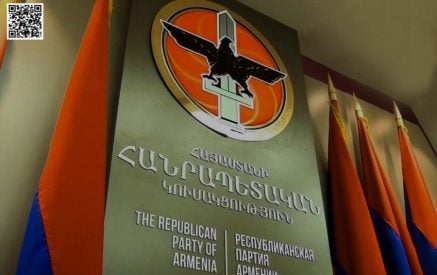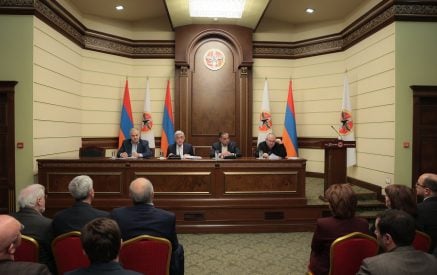“On May 6, I will neither hold a rally, nor go on a hunger strike,” one of the famous politicians promised me yesterday. The conversation was private, and that is why I cannot make the name public. And if everything happens on May 6 as many of us predict, there will probably be a possibility to “declassify” his name and assert along with that whether he had kept his word or not.
Certainly, it would be ideal, if our government got new insights and gave up on the well-trodden path of “winning” elections it has been taking for 18 years now. In any event, having a non-Republican mayor in Yerevan would lay the foundation for not only healthy rivalry between the government and the opposition, but also civilized cooperation between them. Yes, cooperation, because the Yerevan City Hall and the Cabinet are compelled to solve certain issues together.
However, unfortunately, miracles don’t happen; judging from everything, the government acts “according to the standard,” and the Republican Party of Armenia (RPA) will get “40-plus” percent thanks to election bribes, “toughness” of people like Tokhmakh, as well as selfless efforts of the likes of Turbo. Those who have become president or MP in that way and are now opposition or an alternative should not be surprised that others do so. One could pin hopes on the government’s insights neither yesterday nor today nor tomorrow nor at the 2017 or 2018 elections. Furthermore, it applies not only to Armenia; in any country, unless you force the government to do something, it will not do anything good.
Therefore, the question is how to force. And one should assert here that the opposition’s attitude is also “according to the standard.” Let me quote publicist Artsrun Pepanyan: “On May 6, brief rallies are expected in certain districts of the republic, in particular in the capital, on the following subject: ‘We are fair, honest, but they haven’t allowed us to destroy them yet another time.’
Read also
“Rallies will last for a few days; then the protesters will start to prepare for the National Assembly election. No reflection on what has happened and search for other methods of changing the reality are expected.”
Really, the similarity of pre-election and post-election processes and the monotony of the opposition’s 20-year-old rhetoric are just astonishing. If I count how many times I have heard the words “robbery” and “emigration,” which, certainly, accurately describe the situation in our country in the past 20 years, as well as phrases “the Establishment is in panic,” “the regime is in agony,” then the number of repetitions will reach, without exaggeration, several thousand.
When this cycle ends on May 6, not only the opposition, but also the whole of society will have to think about new, nonstandard actions, ways of struggle, if you like, although I don’t like the word. Perhaps the above-mentioned politician hinted at that very thing.
ARAM ABRAHAMYAN




















































